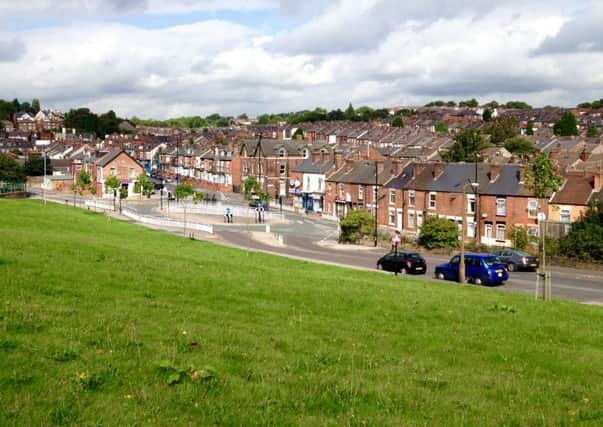One in six Roma students excluded from school in Sheffield


It is one of the areas of Yorkshire that has notoriously been most affected by EU immigration, frequently making national headlines for all the wrong reasons.
Now a former headteacher is warning that Page Hall in Sheffield is experiencing ‘dangerous ghettoisation’ of children from the Roma-Slovak community who are being excluded from mainstream schools in much greater numbers than their peers.
Advertisement
Hide AdAdvertisement
Hide AdSheffield Council’s own figures show 17 per cent - around 260 pupils - of Gypsy/Roma children were excluded in 2015/16, far above the city average of four per cent. The percentage of children from the community being excluded has increased in recent years, up from nine per cent in 2013/14 and 14 per cent in 2014/15.


The council says it is ‘concerned’ by the figures - but claims many of the children ‘struggle to get to grips with the city’s formal education system’ having arrived with little grasp of English.
But in a new report for the Institute of Race Relations, former Sheffield headteacher and self-styled ‘radical educationalist’ Chris Searle says he believes that Roma children are being subjected to ‘unjust and disproportionate levels’ of school exclusions in a similar way to black communities in the past.
Mr Searle, aged 72 and the headteacher of the Earl Marshal School in Sheffield between 1990 and 1995 before it went into special measures, interviewed children who had been excluded at a Yemeni-run ‘inclusion centre’ where he has been involved in teaching the excluded Roma children English. He says the children told him their exclusions came about as a result of fighting back after being provoked by racist comments by classmates.
Advertisement
Hide AdAdvertisement
Hide Ad“They are reacting to being at the bottom of the pecking order. They are the latest group of migrant young people to be starting in schools in Sheffield. Very often, if you look at the history of racism in British schools, it is that group that become the butt of racism.


“Schools should be dealing with them and not excluding them.
“Of course you don’t let problems go. You deal with it by supporting the child and making sure anti-social behaviour is properly controlled.”
His report says: “For the main part those who are permanently excluded, stay permanently excluded, and rarely find places in mainstream schools again.
Advertisement
Hide AdAdvertisement
Hide Ad“One of the most serious and dire consequences of their exclusion is that these children rarely meet and befriend, on a day to day basis, young people from any other community but their own, as they would do if they were still at a mainstream school.
“Now they find themselves in a virtual apartheid educational zone in Sheffield. Their lives have become dangerously ghettoised and restricted solely to companions of their own community.”
Excluded Slovak children say they had been provoked by racist behaviour. One 15-year-old boy says he was excluded after three Pakistani boys had thrown stones at him and told him to ‘go back to your own country’, leading him to fight back.
A 14-year-old girl adds: “The other students said to us, ‘You come to England to get the money from us, but you shouldn’t have it’. I said, ‘No, we come here to get a better life’. They said ‘This school is not for you. It’s for us, it’s only for the English people.’”
Advertisement
Hide AdAdvertisement
Hide AdIn December, a Government report noted a 1,650 per cent increase in the number of Roma and Eastern European families coming to Sheffield was putting pressure on city schools.
Dawn Walton, acting director for Children & Families at Sheffield Council, says: “We are concerned about the numbers of exclusions of Roma schoolchildren and we work in close partnership with our primary and secondary schools to continually improve provision for all children to prevent exclusion. We do understand some schoolchildren need extra support and we are working closely to achieve this.
“Many Roma children have spent a limited amount of time in school when they arrive in the UK and so struggle to get to grips with our formal education system.
“We are developing ways to help them adapt to our schools, an example of this is that we are working with small groups of children to develop their self-esteem, social skills as well as language skills so that they find it easier settling into a classroom setting.
Advertisement
Hide AdAdvertisement
Hide Ad“We are confident that the work we are developing will see many of these pupils making stronger progress in their education and exclusion rates for the 16/17 school year will show a significant reduction.”